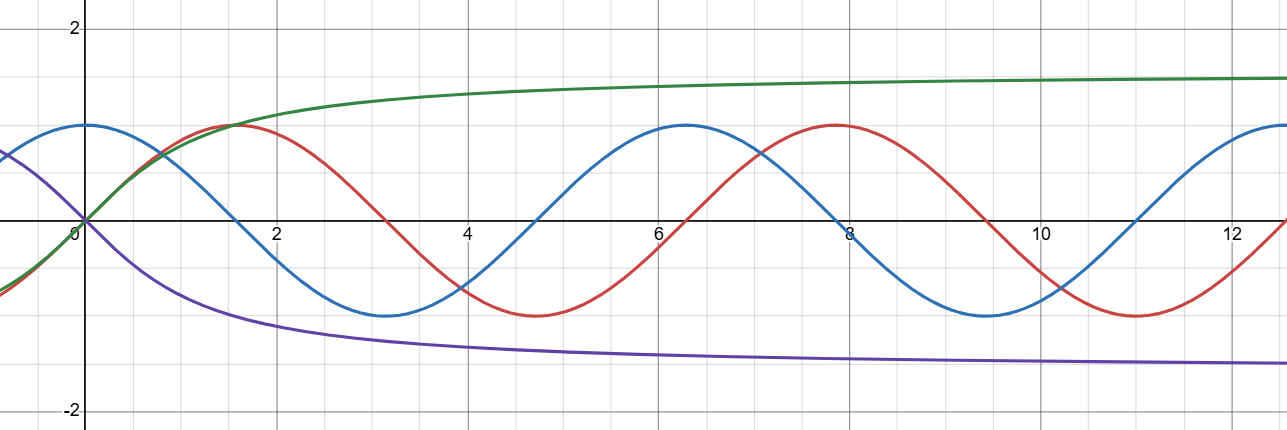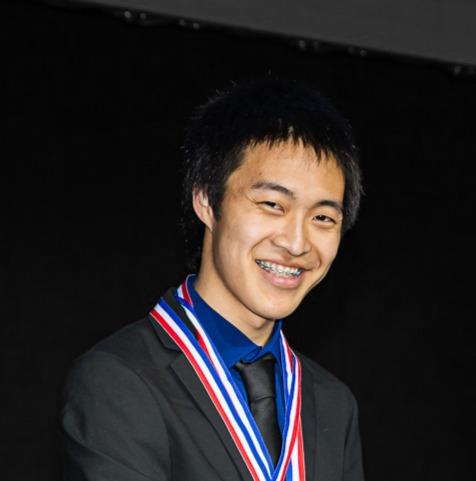SAT Math Prep
Summer 2026
Teacher: Caleb Alons
Email: calebscottalonsmathematics@gmail.com
Email: calebscottalonsmathematics@gmail.com
You are not currently logged in.
You must log-in/sign-up before you can pay tuition for a course.
Log-in/Sign-up to RegisterNEW REGISTRATION NOTE
Due to course enrollment volume and scheduling feedback from former years, this will be the first summer that this course is offered in two separate sessions.
- Session #1 of SAT Math Prep runs from June 15, 2026 to July 12, 2026 and is the "satprep ($300)" dropdown option for registration.
- Session #2 of SAT Math Prep runs from July 13, 2026 to August 9, 2026 and is the "satprep2 ($300)" dropdown option for registration.
- In the Online Store, please select the desired session, but do NOT accidentally register for both sessions (unless, for some reason, you are trying to take the entire course two times back-to-back).
- NOTE: Each session is the FULL COURSE and not splitting it into separate parts.
- The Summer 2026 SAT Math Prep syllabus contains both session schedules under the Course Calendar section.
COURSE OVERVIEW:
The syllabus for this 0.5 credit course is provided below (email calebscottalonsmathematics@gmail.com to request a PDF copy of the Summer 2026 SAT Math Prep syllabus).
TUITION: $300
WHY THIS COURSE?
The SAT Math Test is a game. A game is an environment with rules and an objective. Games are won or lost. In my experience preparing high schoolers for their SAT's, the most common mistake I find is often not even a specific mathematical one, but rather a mindset one. The SAT Math Test is not a math test. This is no surprise to students familiar with test taking, and the SAT Math Test is especially winnable if viewed, strategized, and played as a game. I created this course for the singular purpose of providing the proper training grounds for students who already "know" the math topics that could be found on the SAT but have not had the chance to see how SAT test writers put these problems together. When I hand sorted the problems from former SAT's, I sorted by topic AND by SOLUTION TYPE so that students who complete each assignment will not only gain valuable practice with a volume of test-difficulty problems but also implicitly recognize and master the types of problems, problem templates, and frequently-occurring problem structures for each topic. What sets this course apart from standard SAT prep books and programs online is the solution-oriented sorting and 24/7 access to the course website with same-day instructor response times. Ultimately, this course hopes to show students how truly attainable an 800 is and to equip them with the resources to get them there.
Syllabus for
SAT Math Prep
Summer 2026
- COURSE DESCRIPTION
- SAT Math Prep is a rigorous and fast-paced test prep course, aimed at equipping students with topic-by-topic mastery of SAT Math (also relevant for the PSAT). Students will practice by solving 810 former SAT Math problems that have been hand-sorted by topic into the 20 primary problem types found on the SAT Math test. With the College Board’s relatively recent introduction (and predominance) of the digital SAT/PSAT, traditional SAT Math strategies have since evolved. To best equip students in light of these changes, this course teaches topical mastery as the optimal strategy, irrespective of one’s former test experience or previous scores. Rather than being a remedial course, SAT Math Prep is purposefully designed to give students in the 550–650 range their best possible chance at an 800. Students should expect to spend 2–3 hours every weekday to keep up with the pace of the course and to achieve optimal results.
- Prerequisite(s): This course assumes student mastery of Algebra 1, Algebra 2, and a decent familiarity with the fundamental concepts of Euclidean Geometry. Achieving a high SAT Math score implies familiarity with these prerequisites, so students unfamiliar with these prerequisites will encounter built-in struggle with the SAT Math test, and it is recommended to wait to take the SAT until the student has had the chance to encounter and learn the concepts in these courses. (Granted, it does not hurt to take early SAT’s to build test experience, but as stated in the course description, SAT Math Prep is not a remedial course and is designed to equip students with the final push to an 800.)
- STUDENT LEARNING OUTCOMES FOR THIS COURSE
- COURSE OUTCOMES
- After completing this course successfully, students will be able to quickly recognize and accurately solve problems in the following SAT Math topics:
- Linear Equations
- Linear Equations from Word Problems
- Equations of Lines
- Systems of Equations
- Systems of equations from Word Problems
- Inequalities
- Exponents and Radicals
- Manipulating Mathematical Expressions
- Percents
- Ratios and Proportions
- Units of Measurement
- Properties of Fundamental Functions
- Angles
- Geometry
- Trigonometry
- Line Graphs
- Tables
- Bar Graphs and Box Plots
- Scatter Plots and Dot Plots
- Probability and Statistics
- After completing this course successfully, students will be able to quickly recognize and accurately solve problems in the following SAT Math topics:
- GENERAL OUTCOMES
- Students will develop the following skills that do not necessarily have restricted application to this course specifically:
- Study discipline and mental toughness
- Seeking help and offering help to peers
- Collaborative learning
- Increased proficiency in standardized math testing
- Students will develop the following skills that do not necessarily have restricted application to this course specifically:
- COURSE OUTCOMES
- TEXTBOOKS AND OTHER LEARNING RESOURCES
- REQUIRED MATERIALS
- Textbooks:
- There is no required text for this course; all necessary course resources are provided by the instructor through the course website.
- Other:
- Access to the Internet to log onto the course website
- Textbooks:
- OPTIONAL MATERIALS
- Other:
- A calculator that is approved by the College Board (see https://satsuite.collegeboard.org/sat/what-to-bring-do/calculator-policy). With the recent development of the embedded Desmos calculator in the Bluebook testing app, my personal recommendation would be for students to become proficient with Desmos.
- Other:
- REQUIRED MATERIALS
- POLICIES AND PROCEDURES
- COURSE POLICIES AND PROCEDURES
- Attendance: SAT Math Prep does not have a live component. Instead, students will engage on the class website throughout the week with the instructor and their fellow peers as they progress through the course material. Students desiring additional help from the instructor need only reach out to the instructor via email.
- Evaluation Procedures:
- Weekly Homework Assignments:
- Five topics are assigned each week. For each topic, the student must do the following: watch the assigned video(s): (1 point), complete all the exercises in the topic (3 points), and self-grade with the solutions booklet (1 point). The expected section total is 5 points.
- Each item listed above is based on completion. Students will report their own completion scores per section by the Sunday of each week before 11:59 PM (EST). Since there are 20 total topics, the expected total is 100 points for the entire course.
- Student Engagement:
- Student engagement and peer collaboration is STRONGLY encouraged in this course. Students will have access to the course website to post questions and to help answer the questions of their peers.
- Grading Scale:
- 90–100 points
- 80–89 points
- 70–79 points
- 60–69 points
- 0–59 points
- The end goal of this course is obviously for the student to perform well on the SAT Math test, so this grading scale is ultimately a metric for measuring student completion of the course material to indicate a certain level of preparedness. The higher the course grade, the better chances the student has at a higher and improved score.
- COURSE POLICIES AND PROCEDURES
- COURSE CALENDAR
- Note on Due Dates: Completion scores for assigned sections will ALWAYS be due by the Sunday of their assigned week at 11:59 PM (EST).
SUMMER 2026
Session #1 (June 15, 2026 – July 12, 2026)
Week 1 (Jun 15–21): Solving Equations
- Linear Equations
- Linear Equations from Word Problems
- Equations of Lines
- Systems of Equations
- Systems of Equations from Word Problems
- Submit completion scores
Week 2 (Jun 22–28): Topics in Algebra I
- Inequalities
- Exponents and Radicals
- Manipulating Mathematical Expressions
- Percents
- Ratios and Proportions
- Submit completion scores
Week 3 (Jun 29–Jul 5): Topics in Algebra II and Geometry
- Units of Measurement
- Properties of Fundamental Functions
- Angles
- Geometry
- Trigonometry
- Submit completion scores
Week 4 (Jul 6–12): Applied Mathematics – Data Analysis and Modeling
- Line Graphs
- Tables
- Bar Graphs and Box Plots
- Scatter Plots and Dot Plots
- Probability and Statistics
- Submit completion scores
Session #2 (July 13, 2026 – August 9, 2026)
Week 1 (Jul 13–19): Solving Equations
- Linear Equations
- Linear Equations from Word Problems
- Equations of Lines
- Systems of Equations
- Systems of Equations from Word Problems
- Submit completion scores
Week 2 (Jul 20–26): Topics in Algebra I
- Inequalities
- Exponents and Radicals
- Manipulating Mathematical Expressions
- Percents
- Ratios and Proportions
- Submit completion scores
Week 3 (Jul 27–Aug 2): Topics in Algebra II and Geometry
- Units of Measurement
- Properties of Fundamental Functions
- Angles
- Geometry
- Trigonometry
- Submit completion scores
Week 4 (Aug 3–9): Applied Mathematics – Data Analysis and Modeling
- Line Graphs
- Tables
- Bar Graphs and Box Plots
- Scatter Plots and Dot Plots
- Probability and Statistics
- Submit completion scores
INSTRUCTOR QUALIFICATIONS
Caleb Scott Alons holds a B.S. in Mathematics, a B.A. in Biblical Literature, and is currently pursuing a Ph.D. in Mathematics. Caleb launched the AP Homeschoolers summer mathematics program four years ago and has been teaching with AP Homeschoolers ever since. After developing a love for teaching mathematics as a senior in high school, Caleb started professionally tutoring mathematics in 2020 and has since served hundreds of students in primary mathematics, Algebra I–II, Geometry, Precalculus/Trigonometry, AP Calculus AB/BC, undergraduate Calculus I–III, Differential Equations, Linear & Matrix Algebra, Discrete Mathematics, Abstract Algebra, Real Analysis, General Topology, and Algebraic Topology. Caleb also lectured undergraduate mathematics at Oral Roberts University for four years. In his undergrad, Caleb led as president the KME Honors Mathematical Society and Association of Computing Machinery in addition to being an active participant in the Mathematical Association of America, presenting award-winning research in MAA sectionals and the MAKO UG Research Conference. Caleb also scored three consecutive years in the William Lowell Putnam Mathematical Competition, which is esteemed as the hardest UG mathematical exam in the world.
As someone who formerly struggled with mathematics in high school himself, Caleb is deeply invested in seeing every student succeed no matter the circumstances and has personally tutored many students with learning disabilities to help them achieve 5's on AP Calculus AB/BC, score above the 90th percentile on the PSAT/SAT/ACT math tests, and rank in the top 5% of their university math courses. Ultimately, teaching mathematics is a source of great joy for Caleb, and he delights in serving each student under his instruction.
The teacher is the servant of his students. – CSA

